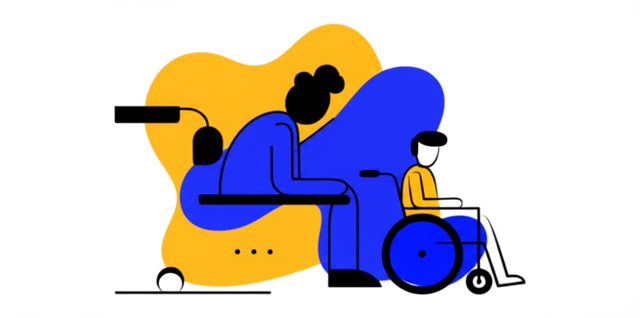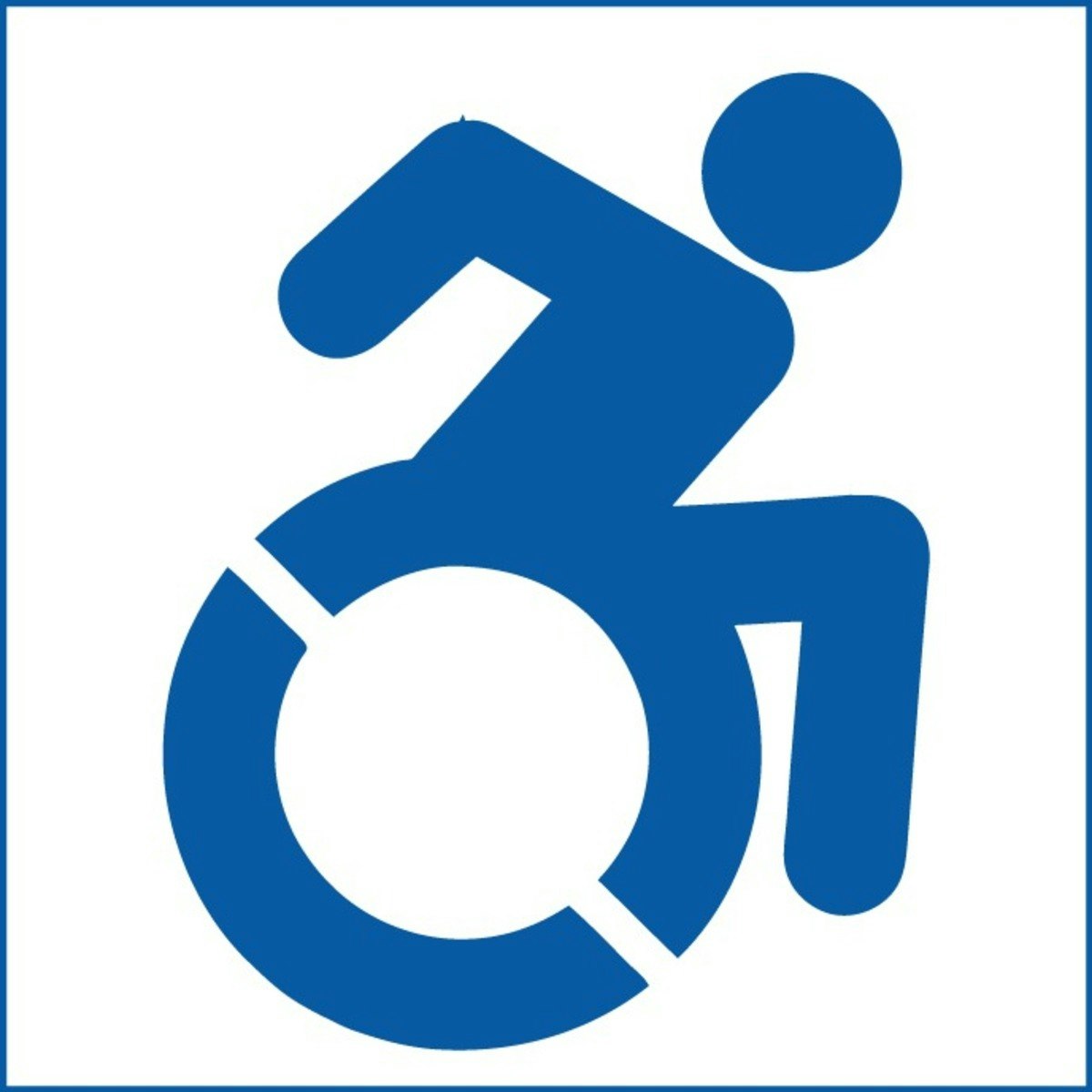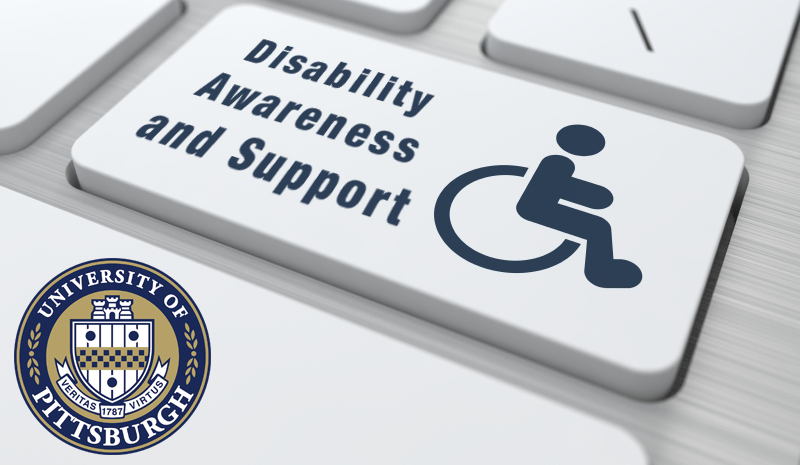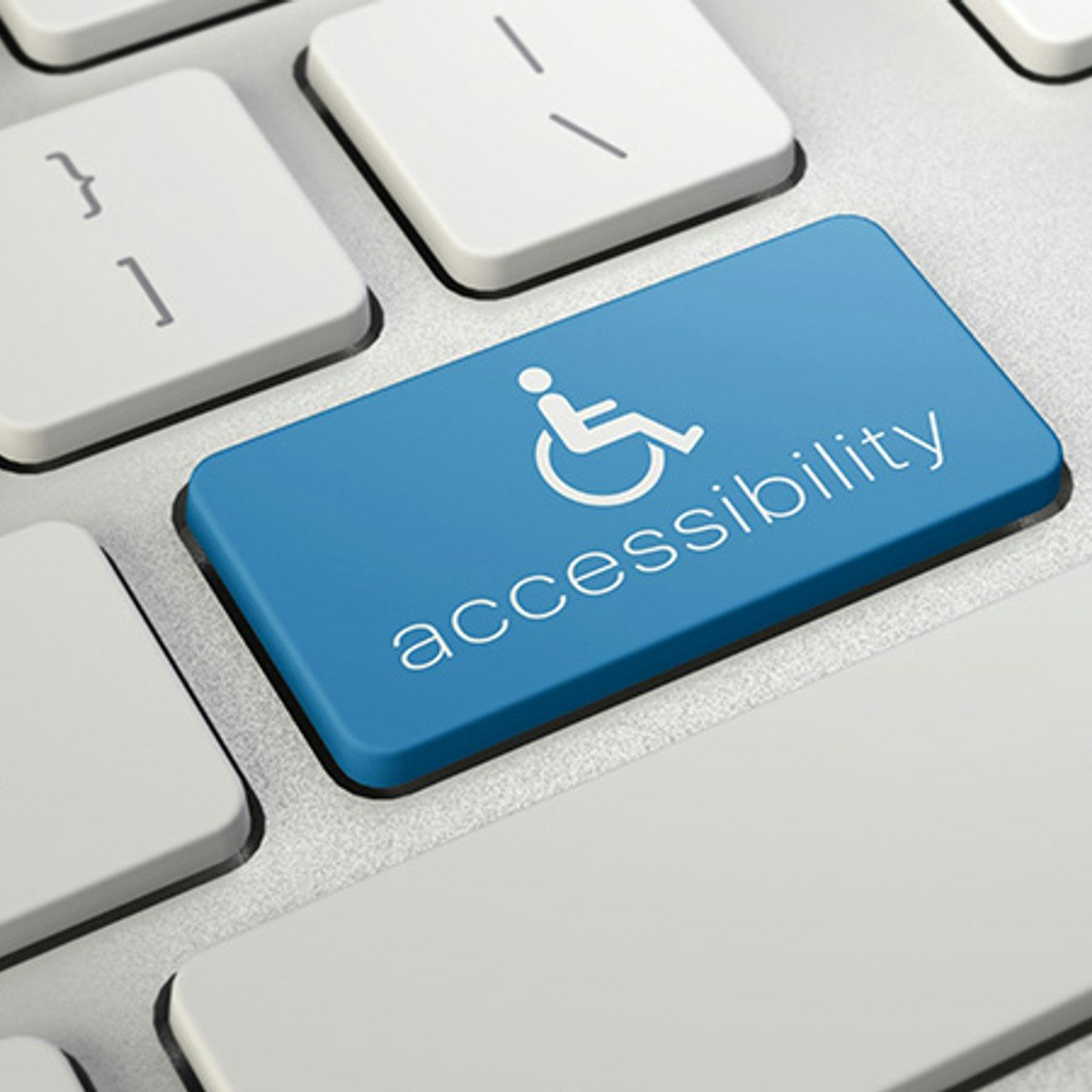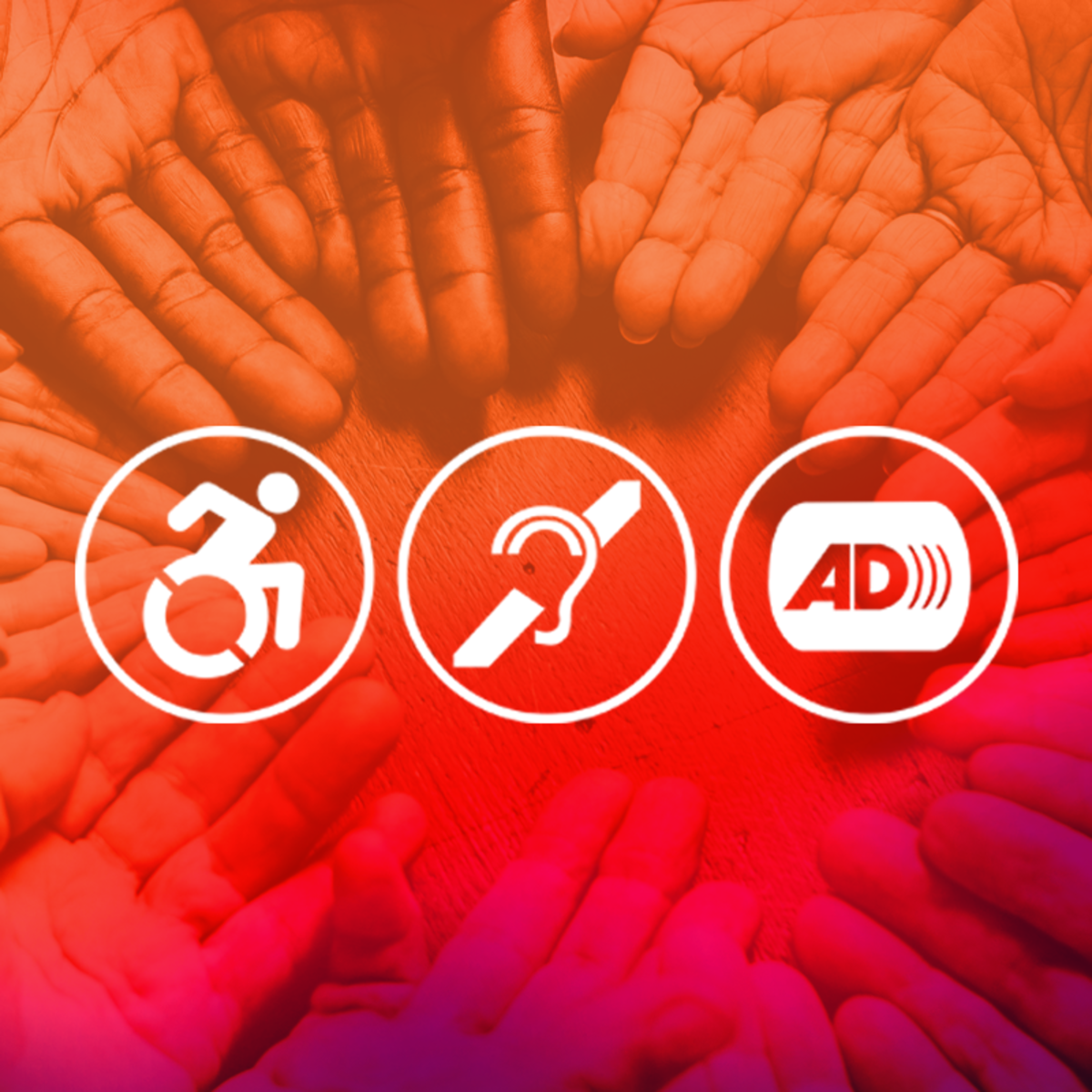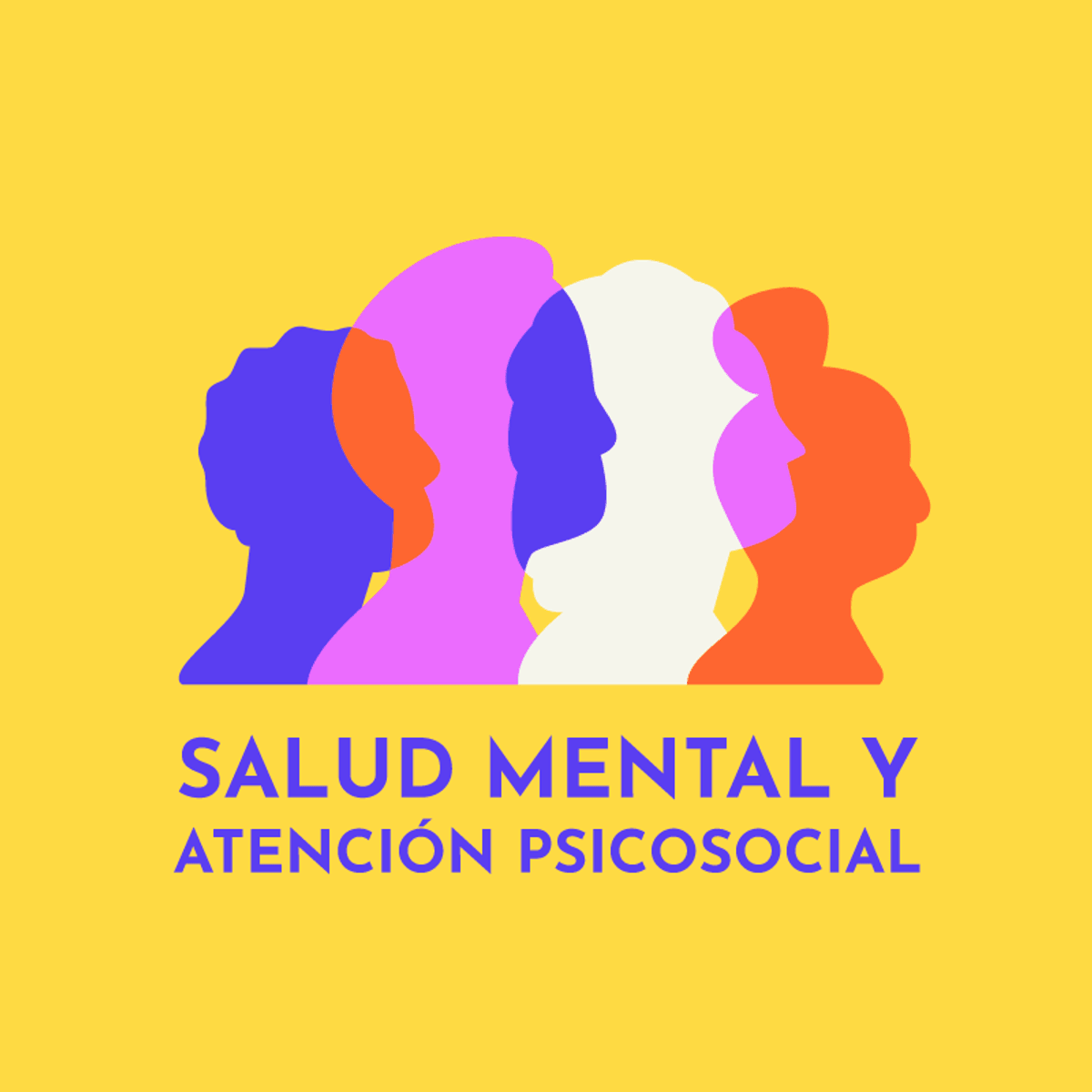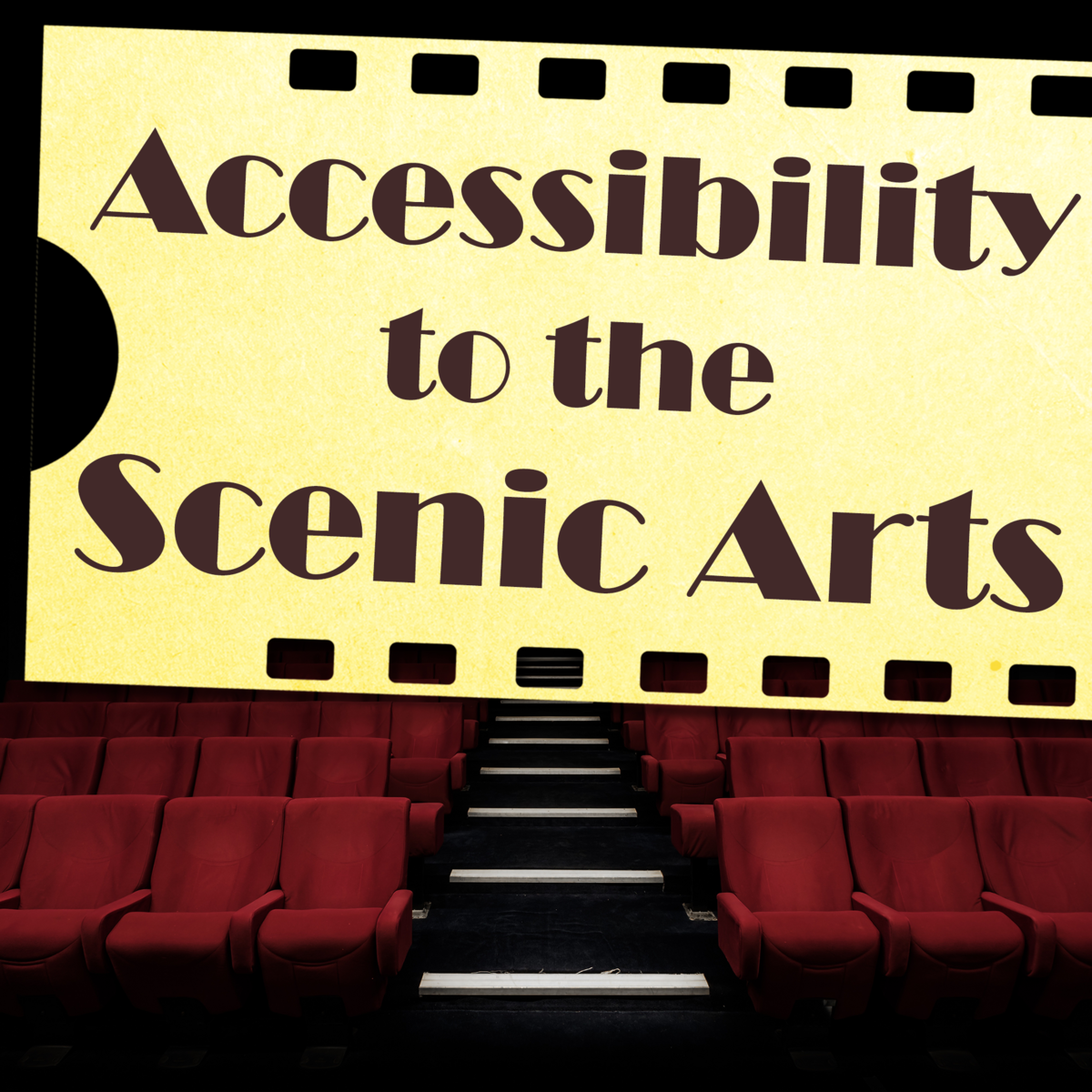Disability Advocate
Becoming a Disability Advocate: Championing Rights and Inclusion
A Disability Advocate is a professional dedicated to supporting, empowering, and championing the rights of individuals with disabilities. They work to ensure people with disabilities have equal access to opportunities, services, and full participation in society. Advocates help individuals navigate complex systems like healthcare, education, and employment, ensuring their voices are heard and their rights are protected.
Working as a Disability Advocate can be profoundly rewarding. It involves direct engagement in social justice, helping to dismantle barriers and promote inclusivity. Advocates often find deep satisfaction in empowering individuals, influencing policy changes, and fostering a more equitable society where everyone, regardless of ability, can thrive.
Introduction to Disability Advocacy
This section provides a foundational understanding of the field, its historical roots, and its core goals, relevant for anyone curious about this impactful career.
What is Disability Advocacy?
Disability advocacy involves actively promoting and protecting the rights and interests of individuals with disabilities. Advocates work to ensure people with disabilities are treated fairly, have equal access to resources and opportunities, and can live with dignity and independence. This can involve representing individuals, influencing policy, or raising public awareness.
The scope of disability advocacy is broad, covering various aspects of life. This includes ensuring physical accessibility in public spaces, fighting for inclusive education and employment practices, securing appropriate healthcare and social services, and challenging discriminatory attitudes and policies. Advocates work with individuals across all types of disabilities, including physical, sensory, intellectual, developmental, and mental health conditions.
The work aims to empower individuals by helping them understand their rights and speak up for themselves (self-advocacy), while also acting on their behalf when needed. It's about ensuring that the perspectives and needs of people with disabilities are central to decisions that affect their lives.
A Brief History of Disability Rights
The disability rights movement emerged from a long history of exclusion and marginalization. Early efforts, like the establishment of schools for the Deaf in the early 1800s, marked initial steps. However, societal views often limited progress, and harmful practices like eugenics gained traction in the early 20th century.
The movement gained significant momentum in the mid-20th century, drawing inspiration and tactics from the Civil Rights Movement. Veterans returning with disabilities after World War II and activists like Judy Heumann and Ed Roberts became powerful voices demanding change. They organized protests, sit-ins (like the influential 1977 Section 504 sit-in), and public awareness campaigns to challenge systemic discrimination.
Landmark legislation followed, driven by persistent advocacy. Key victories include the Rehabilitation Act of 1973, particularly Section 504, the first major federal civil rights protection for people with disabilities. This was followed by the Education for All Handicapped Children Act in 1975 (now IDEA) and, most notably, the Americans with Disabilities Act (ADA) in 1990, a comprehensive civil rights law prohibiting discrimination in many areas of public life.
These books provide deeper insights into the history and political context of the disability rights movement.
Core Objectives and Populations Served
The fundamental goal of disability advocacy is to achieve full inclusion and equal rights for all people with disabilities. Key objectives include promoting accessibility in physical and digital environments, ensuring equitable access to education, healthcare, employment, and housing, and reforming policies that create barriers or perpetuate discrimination.
Advocates work towards systemic change by challenging discriminatory laws and practices, promoting universal design principles, and increasing public awareness and understanding of disability issues. They also focus on individual empowerment, helping people develop self-advocacy skills and navigate complex systems to access necessary support and services.
Disability advocates serve a diverse range of populations, encompassing individuals with any type of long-term physical, mental, intellectual, or sensory impairment. This includes people with mobility impairments, blindness or low vision, deafness or hearing loss, learning disabilities, developmental disabilities like autism, mental health conditions, chronic illnesses, and more. Advocacy often recognizes the intersectionality of disability with other identities like race, gender, and socioeconomic status.
Defining the Role of a Disability Advocate
Understanding the day-to-day work, environments, and ethical responsibilities provides a clearer picture of what being a disability advocate entails.
Day-to-Day Responsibilities
The daily tasks of a Disability Advocate vary widely depending on their specific role and work setting. Common responsibilities include providing information and referrals to individuals and families about available resources and rights. Many advocates engage in case management, helping clients develop individualized plans and monitoring their progress.
Advocates often represent clients' interests in various settings, such as negotiating accommodations with employers or schools, assisting with applications for benefits like Social Security Disability Insurance (SSDI), or supporting clients during meetings related to healthcare or education (like IEP meetings). They might conduct assessments to understand client needs and barriers.
Other duties can involve researching policies, writing reports, conducting outreach to raise awareness, developing educational materials, and organizing community events. Strong communication, problem-solving, and organizational skills are essential for managing these diverse tasks effectively.
Typical Work Environments
Disability Advocates work in a variety of settings. Many are employed by non-profit organizations dedicated to disability rights, specific types of disabilities, or broader social justice issues. These organizations range from small grassroots groups to large national entities like the American Association of People with Disabilities (AAPD).
Government agencies at the local, state, and federal levels also employ advocates. Roles might exist within departments focused on social services, health, education, or civil rights enforcement. Some advocates work within healthcare systems, hospitals, or rehabilitation centers, helping patients navigate care and access resources.
Educational institutions, from K-12 schools to universities, often have disability services offices staffed by advocates or coordinators. Additionally, some advocates work in private practice or for legal firms specializing in disability law, while others might focus on policy analysis within think tanks or advocacy groups.
Collaboration and Stakeholder Engagement
Effective advocacy rarely happens in isolation. Disability Advocates routinely collaborate with a wide range of stakeholders. This includes working closely with the individuals with disabilities themselves and their families, ensuring their perspectives and goals remain central to the advocacy process.
Advocates frequently interact with professionals from other fields, such as educators, healthcare providers, social workers, therapists, and vocational counselors, to coordinate support and services for their clients. Building strong relationships with these professionals is crucial for successful outcomes.
Engaging with policymakers, government officials, and community leaders is another key aspect, particularly for advocates focused on systemic change. This involves presenting information, lobbying for policy reforms, and participating in community coalitions to build broader support for disability rights and inclusion.
Ethical Obligations and Confidentiality
Disability advocacy carries significant ethical responsibilities. A core principle is promoting the self-determination and autonomy of the individual with a disability, ensuring the advocate supports the client's choices rather than making decisions for them. Maintaining confidentiality is paramount; advocates must handle sensitive personal information responsibly and only share it with the client's explicit permission, except in specific situations involving harm.
Advocates must be aware of potential conflicts of interest, especially when working within larger institutions or systems. Their primary loyalty must always be to the individual they are advocating for. This requires transparency and clear communication about the advocate's role and limitations.
Cultural competency is also vital, recognizing how disability intersects with diverse cultural backgrounds, identities, and experiences. Advocates strive to provide support that is respectful, unbiased, and tailored to the individual's unique context and needs, upholding principles of dignity and equal rights.
Understanding these ethical nuances is critical. These resources delve into the complex relationship between disability, culture, and identity.
Formal Education Pathways
While passion and lived experience are invaluable, formal education can provide a strong foundation for a career in disability advocacy.
Relevant Undergraduate Degrees
Several undergraduate majors provide a solid base for a career in disability advocacy. Social Work is a common choice, offering training in case management, counseling skills, and understanding social systems. Degrees in Psychology or Sociology provide insights into human behavior, social structures, and research methods applicable to understanding disability issues.
Public Policy or Political Science majors develop skills in policy analysis, understanding legislative processes, and advocacy strategies, which are crucial for systemic change work. Education, particularly Special Education, equips graduates with knowledge about inclusive learning environments and educational rights.
Other relevant fields include Human Services, Rehabilitation Counseling, or interdisciplinary programs like Disability Studies, which focus specifically on the social, cultural, and political aspects of disability. While some sources suggest an Associate's degree might suffice for certain roles, a Bachelor's degree is often preferred or required, especially for advancement.
Graduate Programs and Certifications
For those seeking advanced roles or specialization, graduate studies can be beneficial. A Master of Social Work (MSW) is a popular route, often leading to clinical or advanced macro-level practice. Master's degrees in Public Health (MPH), Public Administration (MPA), or Public Policy (MPP) can prepare advocates for leadership roles in policy and program management.
Specialized Master's programs in Disability Studies, Rehabilitation Counseling, or Special Education offer focused expertise. A law degree (JD) is necessary for those wishing to practice disability law, representing clients in legal proceedings related to discrimination or benefits appeals.
While not always mandatory, certifications can enhance credibility and demonstrate specialized knowledge. Examples might include certifications in Rehabilitation Counseling (CRC) or specific areas like Assistive Technology or benefits counseling (e.g., for Social Security advocacy). Some roles, particularly those involving legal representation for Social Security claims, may require passing specific exams and background checks.
These courses offer introductions to key areas often covered in formal programs.
Doctoral Studies in Disability
For individuals interested in research, teaching at the university level, or high-level policy work, pursuing a Ph.D. can be a valuable pathway. Doctoral programs in Disability Studies allow for deep exploration of theoretical frameworks, historical context, cultural representations, and policy analysis related to disability.
Ph.D. programs in related fields like Sociology, Anthropology, Public Health, Education, or Political Science may also offer specialization tracks or research opportunities focused on disability. Research conducted at the doctoral level contributes significantly to the knowledge base, informs advocacy efforts, and helps shape future policies and practices.
A Ph.D. typically involves rigorous coursework, comprehensive exams, and the completion of a dissertation based on original research. Graduates often pursue academic careers, lead research initiatives in non-profit or government settings, or hold senior positions influencing national or international disability policy.
These readings are foundational in Disability Studies and often encountered in graduate and doctoral programs.
Importance of Fieldwork and Practicums
Regardless of the specific educational path chosen, practical experience is crucial for becoming an effective Disability Advocate. Fieldwork, internships, or practicum placements provide invaluable opportunities to apply theoretical knowledge in real-world settings. These experiences allow students to develop essential skills under supervision.
Through fieldwork, aspiring advocates gain firsthand experience interacting with clients, navigating service systems, collaborating with professionals, and understanding the day-to-day challenges and rewards of the role. It helps build confidence, refine communication and problem-solving abilities, and develop professional networks.
Most formal degree programs in fields like social work, rehabilitation counseling, and sometimes public policy require supervised fieldwork as part of the curriculum. These placements are essential for skill development and are often a prerequisite for licensure or certification in certain related professions.
Online and Independent Learning
Formal degrees aren't the only way to gain knowledge. Online resources and self-directed learning offer flexible pathways, especially for career changers or those supplementing traditional education.
Key Topics for Self-Study
Aspiring advocates can build foundational knowledge through independent study. Crucial areas include understanding disability rights laws, such as the Americans with Disabilities Act (ADA) and the Individuals with Disabilities Education Act (IDEA). Learning about specific disability types, their characteristics, and common challenges is also important.
Familiarity with assistive technology, including screen readers and mobility aids, and principles of universal design is increasingly vital. Understanding the basics of healthcare systems, social security benefits (SSI/SSDI), special education processes (like IEPs), and community resources available to people with disabilities is key for providing practical support.
Developing strong communication, negotiation, and problem-solving skills is equally important. Studying ethical considerations in advocacy and learning about the history and principles of the disability rights movement provides essential context.
Building Experience Through Volunteering
Practical experience is invaluable, and volunteering offers a flexible way to gain it. Many non-profit disability organizations rely on volunteers for various tasks, providing exposure to the field. This could involve assisting with events, supporting clients directly, helping with administrative tasks, or contributing to outreach efforts.
Volunteering demonstrates commitment and allows you to develop relevant skills, such as communication, empathy, and navigating service systems. It's an excellent way to explore different aspects of advocacy work and determine which areas resonate most with your interests and abilities.
These experiences can also help build a professional network and may lead to future employment opportunities. Documenting your volunteer work and the skills gained can significantly strengthen your resume when seeking paid positions in the field.
Using Online Courses Effectively
Online courses offer a structured and accessible way to learn specific skills and knowledge relevant to disability advocacy. Platforms like OpenCourser aggregate thousands of courses, allowing learners to find resources on topics ranging from disability awareness and specific conditions to legal frameworks and accessibility standards.
These courses can supplement formal education or provide targeted learning for career changers. They allow learners to study at their own pace and often offer certificates upon completion, which can be added to resumes or LinkedIn profiles. Look for courses covering ADA compliance, web accessibility (WCAG), assistive technology, or specific areas like mental health or neurodiversity inclusion.
When selecting courses, consider the provider's reputation, instructor credentials, course content relevance, and reviews from other learners. OpenCourser's features, like summarized reviews and course syllabi, can help you evaluate options. You can even use the "Save to list" feature to curate your own learning path.
These online courses provide introductions to critical areas like web accessibility and supporting neurodiversity.
Evaluating Online Resources
The internet offers a vast amount of information, but quality varies. When using online resources for self-study, critically evaluate their credibility. Prioritize information from established disability rights organizations, government agencies (like ADA.gov), reputable academic institutions, and well-respected non-profits.
Be mindful of the publication date, as laws and best practices can change. Look for evidence-based information and be cautious of resources promoting unproven therapies or biased viewpoints. When evaluating online courses, check if they are offered by recognized universities or expert instructors in the field.
Consider the source's perspective – is it grounded in the principles of the disability rights movement, emphasizing rights, inclusion, and self-determination? Cross-referencing information from multiple reliable sources is always a good practice to ensure accuracy and a balanced understanding.
OpenCourser's Learner's Guide offers tips on evaluating online learning materials and structuring your self-study effectively.
Career Progression for Disability Advocates
A career in disability advocacy offers various pathways for growth and specialization, with opportunities evolving based on experience and expertise.
Entry-Level Roles
Individuals entering the field often start in roles like Caseworker Assistant, Community Support Worker, or Intake Specialist. These positions typically involve direct client interaction, providing basic information, assisting with applications, and connecting individuals to resources under supervision.
Other entry points might include roles as Program Assistants in non-profits, supporting events, outreach, or administrative functions. Positions like Residential Aide or Paraprofessional in educational settings also provide relevant experience working directly with individuals with disabilities.
These roles focus on building foundational knowledge of disability issues, service systems, and client interaction skills. An Associate's or Bachelor's degree in a related field is often beneficial, alongside demonstrated passion and relevant volunteer or internship experience.
Mid-Career Opportunities
With experience, advocates can move into roles with greater responsibility and autonomy. Positions like Disability Advocate, Case Manager, or Benefits Specialist involve managing a caseload, providing more in-depth support, and representing clients more independently.
Opportunities also open up in areas like policy analysis, program coordination, or community organizing. Advocates might specialize in specific areas, such as housing, employment, education, or healthcare advocacy. Roles involving training development or leading outreach initiatives also become accessible.
Salary potential generally increases with experience and specialization. According to ZipRecruiter data as of March 2025, the average hourly pay for a Disability Advocate in the US is around $21.66, with a common range between $17.07 and $25.72 per hour ($35,500-$53,500 annually). However, salaries can vary significantly based on location, organization type, education, and specific role; some sources report higher average salaries, potentially reflecting more specialized or experienced roles.
Senior Leadership and Specialization
Experienced advocates may advance to senior leadership positions, such as Program Director, Advocacy Manager, or Executive Director of a non-profit organization. These roles involve strategic planning, staff supervision, budget management, fundraising, and representing the organization publicly.
Specialization can lead to roles as consultants, subject matter experts, or trainers, advising organizations on accessibility, compliance, or inclusive practices. Some advocates pursue careers in disability law, requiring a law degree, or move into academia as researchers or professors in Disability Studies or related fields.
Transitioning into related fields like human rights law, public health administration, social work leadership, or policy advising at government agencies is also common. These advanced paths often require graduate degrees and extensive experience in the field.
Ethical Considerations in Disability Advocacy
Navigating the complexities of advocacy requires a strong ethical compass, particularly when dealing with sensitive issues and systemic barriers.
Autonomy vs. Protection
A central ethical tension in disability advocacy is balancing the individual's right to self-determination (autonomy) with the advocate's desire to protect them from harm or poor decisions (sometimes seen as paternalism). Advocates must prioritize the person's expressed wishes and choices, even if the advocate disagrees, respecting their right to make their own decisions, including those involving risk.
The advocate's role is to provide information, explore options, and support the individual in making informed choices, not to impose their own judgment. This requires careful communication, ensuring the person understands the potential consequences of different options, particularly when cognitive disabilities might affect decision-making capacity. The focus should always be on supported decision-making rather than substituted judgment.
Finding this balance requires sensitivity, respect, and a deep commitment to the principle that people with disabilities are the experts in their own lives. It involves empowering individuals to voice their preferences and ensuring their right to direct their own path is upheld.
This book explores theoretical underpinnings relevant to autonomy and embodiment.
Systemic vs. Individual Advocacy
Advocates often face the challenge of addressing both immediate individual needs and the broader systemic issues that create barriers for many. Individual advocacy focuses on resolving specific problems for a single person or family, such as securing accommodations or appealing a benefits denial. Systemic advocacy aims to change policies, laws, or practices that affect large groups of people with disabilities.
While individual advocacy provides direct, tangible help, it may not address the root causes of problems. Systemic advocacy seeks long-term solutions but may not offer immediate relief for individuals facing urgent crises. Many advocates and organizations engage in both types of advocacy, recognizing their interconnectedness.
Ethically, advocates must consider how to allocate limited resources effectively. They must also ensure that efforts to achieve systemic change are informed by the lived experiences and priorities of the individuals they serve, avoiding assumptions about what is best for the community.
Navigating Conflicts of Interest
Conflicts of interest can arise, particularly for advocates working within institutions that also provide services (e.g., hospitals, schools, government agencies). The advocate's primary loyalty is to the person with a disability, but their employer might have competing priorities or policies.
For example, an advocate employed by a school district might face pressure when supporting a student's request for costly accommodations that challenge the district's budget. Similarly, an advocate in a healthcare setting might encounter conflicts when a client's wishes clash with institutional policies or perceived best practices.
Transparency is crucial. Advocates must clearly explain their role, limitations, and any potential conflicts to the client. They need strong boundaries and the integrity to prioritize the client's rights and interests, even when it creates tension with their employer. Independent advocacy organizations often face fewer institutional conflicts.
Cultural Competency and Intersectionality
Disability intersects with all other aspects of identity, including race, ethnicity, gender, sexual orientation, religion, and socioeconomic status. Effective and ethical advocacy requires cultural competency – the ability to understand, appreciate, and interact effectively with people from diverse backgrounds.
Advocates must recognize how cultural factors can influence an individual's experience of disability, their understanding of support systems, and their communication styles. They must avoid making assumptions based on stereotypes and actively seek to understand the individual's unique perspective and cultural context.
Furthermore, advocates need to understand intersectionality – how overlapping systems of discrimination (e.g., racism, sexism, ableism) can compound the challenges faced by individuals with disabilities from marginalized groups. Advocacy efforts should be sensitive to these intersecting identities and work to address discrimination in all its forms.
These resources explore disability through different critical lenses.
Global Perspectives on Disability Advocacy
Disability rights are a global concern, addressed through international frameworks and pursued differently across various cultural and economic contexts.
International Frameworks: CRPD vs. ADA
The primary international treaty is the United Nations Convention on the Rights of Persons with Disabilities (CRPD), adopted in 2006. It sets out comprehensive rights for people with disabilities, covering civil, political, economic, social, and cultural rights. It emphasizes principles like non-discrimination, accessibility, full participation, and respect for inherent dignity. As of late 2024, 191 parties (countries and the EU) have ratified it, committing to align their domestic laws with its standards.
The Americans with Disabilities Act (ADA) is a landmark piece of US civil rights legislation from 1990. While highly influential, it is a national law specific to the United States. It prohibits discrimination in employment, state and local government services, public accommodations, transportation, and telecommunications.
While both frameworks aim to protect disability rights, the CRPD is broader in scope, explicitly addressing rights like education, health, and family life within a human rights framework. The ADA focuses more specifically on non-discrimination and access within the US context. Many countries model their disability laws on principles found in both the ADA and CRPD.
Advocacy in Different Contexts
The practice and challenges of disability advocacy vary significantly around the world. In resource-limited settings or developing countries, advocates may face immense challenges related to poverty, lack of basic infrastructure, limited access to assistive technology, weak legal enforcement, and deeply ingrained stigma.
Advocacy efforts in these contexts often focus on securing fundamental needs, basic access to education and healthcare, and raising awareness to combat discrimination. International NGOs and development organizations play a significant role, but sustainable change often relies on empowering local disability advocates and organizations.
Cultural norms and societal attitudes towards disability also shape advocacy strategies. What works in one cultural context may need adaptation elsewhere. Understanding local beliefs, power structures, and communication styles is essential for effective cross-cultural advocacy.
Cross-Cultural Communication
Effective communication is vital when working across cultures in disability advocacy. Advocates need to be aware of differences in language, non-verbal cues, concepts of disability, family structures, and decision-making processes. Using plain language and avoiding jargon is important everywhere, but especially critical in cross-cultural interactions.
Building trust and rapport requires patience, active listening, and humility. Advocates should seek to understand the perspectives of local communities and individuals rather than imposing external frameworks. Working with local interpreters or cultural liaisons can be invaluable.
Recognizing diverse communication needs related to disability itself (e.g., using sign language, easy-read formats, augmentative communication devices) adds another layer of complexity that requires sensitivity and appropriate resources.
This course explores communication methods relevant to specific disabilities.
International Organizations and Funding
Numerous international non-governmental organizations (NGOs) work specifically on disability rights and inclusion globally. Organizations like Disability Rights International, Rehabilitation International, and divisions within larger bodies like the World Health Organization (WHO) and UNICEF focus on research, policy development, and supporting advocacy efforts worldwide.
Funding for international disability advocacy often comes from governments, international development agencies, private foundations, and individual donations. However, securing stable and sufficient funding remains a significant challenge, particularly for grassroots organizations in the Global South.
These international bodies and funding landscapes influence the priorities and strategies of advocacy work, sometimes creating complex dynamics between global standards and local realities. Collaboration and coordination among different actors are key to maximizing impact.
Challenges and Obstacles
While rewarding, disability advocacy is not without its difficulties. Understanding these challenges is important for anyone considering this path.
Emotional Labor and Burnout
Advocates often work closely with individuals facing significant hardship, discrimination, and distress. Bearing witness to these struggles and navigating complex, often frustrating systems takes an emotional toll. This "emotional labor" – managing one's own feelings while supporting others – can lead to burnout if not managed carefully.
Compassion fatigue, vicarious trauma, and frustration with slow progress are common experiences. Maintaining emotional resilience requires strong self-care practices, peer support networks, setting realistic boundaries, and seeking supervision or counseling when needed.
Organizations play a role by fostering supportive work environments, providing adequate resources, encouraging work-life balance, and acknowledging the emotional demands of the job. Recognizing the signs of burnout early is crucial for long-term sustainability in the field.
These courses touch on mental health awareness, which is crucial for both advocates and the populations they serve.
Funding and Resource Constraints
Many disability advocacy organizations, particularly non-profits and grassroots groups, operate with limited budgets and resources. Funding instability is a persistent challenge, often relying on grants, donations, or government contracts that can be unpredictable or insufficient.
This scarcity affects the ability to hire adequate staff, provide comprehensive services, invest in technology, conduct outreach, and engage in long-term systemic advocacy. Advocates may face large caseloads and limited administrative support, increasing stress and potential burnout.
Securing sustainable funding requires ongoing effort in grant writing, fundraising, and demonstrating impact. It also highlights the need for broader societal investment in disability rights and services.
Resistance to Systemic Change
Advocacy often involves challenging deeply ingrained societal attitudes, institutional inertia, and powerful interests that resist change. Pushing for policy reforms or challenging discriminatory practices can encounter significant opposition from policymakers, businesses, or even segments of the public.
Overcoming this resistance requires persistence, strategic planning, coalition building, and effective communication to build public support and political will. Progress can be slow and incremental, demanding patience and resilience from advocates.
Celebrating small victories and maintaining a long-term perspective are important for staying motivated in the face of systemic barriers and setbacks.
Gaps in Accessibility and Technology
Despite progress, significant gaps remain in achieving full accessibility in both physical and digital environments. Many buildings, transportation systems, websites, and technologies are still not designed inclusively, creating barriers for people with disabilities.
While assistive technology offers powerful tools, access can be limited by cost, lack of training, or availability. Furthermore, mainstream technology is not always designed with accessibility in mind from the outset, requiring retrofitting or creating separate, often less functional, solutions.
Advocates work to promote universal design principles, enforce accessibility standards like WCAG for digital content, and push for greater affordability and availability of assistive technologies. Keeping pace with technological advancements and ensuring new innovations are inclusive presents an ongoing challenge.
These courses focus on the crucial area of digital accessibility.
Future Trends in Disability Advocacy
The field of disability advocacy is continually evolving, shaped by technological advancements, societal shifts, and emerging challenges.
Impact of AI and Assistive Technologies
Technology, particularly Artificial Intelligence (AI) and advanced assistive devices, is poised to significantly impact the lives of people with disabilities and the work of advocates. AI-powered tools offer potential for enhanced communication (e.g., real-time captioning, improved voice recognition), personalized learning, and more intuitive control of environments and devices.
Robotics and advanced prosthetics continue to improve mobility and independence. Virtual and augmented reality (VR/AR) are finding applications in therapy, skill development, and creating accessible virtual experiences. The Internet of Things (IoT) enables smarter homes and real-time health monitoring.
Advocates will need to stay informed about these technologies, promoting equitable access and ensuring they are designed inclusively. They will also need to address ethical considerations related to AI, data privacy, and the potential for technology to create new forms of exclusion if not implemented thoughtfully.
Intersectionality: Climate, Health, and More
There is growing recognition of the intersection between disability and other major societal issues. Climate change, for example, disproportionately affects people with disabilities, who may face greater risks during extreme weather events and challenges in accessing resources during emergencies. Advocacy is increasingly incorporating climate justice perspectives.
Similarly, the intersection of disability and healthcare remains a critical focus, particularly addressing health disparities, access to quality care, and the need for better training for medical professionals. Advocates are pushing for more person-centered, inclusive healthcare systems.
Understanding how disability intersects with issues like poverty, racial justice, gender equity, and aging populations will be crucial for developing holistic and effective advocacy strategies in the future.
This book explores the intersection of disability and neurodiversity.
Evolving Advocacy Tactics
Advocacy strategies are adapting, influenced by generational shifts and new communication platforms. While traditional methods like lobbying and legal challenges remain important, online activism and social media campaigns have become powerful tools for raising awareness, mobilizing support, and challenging ableism.
Younger generations of advocates are leveraging digital platforms to share personal narratives, build community, and organize collective action. There is also a continued emphasis on centering the voices and leadership of people with disabilities themselves within advocacy movements ("Nothing About Us Without Us").
Collaboration across different social justice movements is also growing, recognizing shared goals and the power of solidarity in challenging systemic inequalities.
These books offer critical perspectives that inform evolving advocacy approaches.
Policy Forecasting and Future Rights
Advocates continually monitor the political landscape and anticipate future policy challenges and opportunities. This involves analyzing legislative trends, court decisions, and shifts in public funding priorities that could impact disability rights and services.
Future policy debates may focus on areas like ensuring accessibility in emerging technologies (AI, autonomous vehicles), strengthening community-based supports and long-term care, addressing employment gaps, refining inclusive education policies, and fully realizing the goals of international frameworks like the CRPD.
Advocates play a key role in shaping these debates, providing expertise, representing the perspectives of the disability community, and pushing for policies that advance inclusion, equity, and self-determination.
Frequently Asked Questions
Here are answers to some common questions about pursuing a career as a Disability Advocate.
What qualifications are essential versus preferred?
Essential qualifications often include strong communication (written and oral), interpersonal, problem-solving, and organizational skills. Empathy, patience, resilience, and a strong commitment to disability rights are crucial personal attributes. Knowledge of relevant laws (like ADA) and local resources is often required.
While some entry-level roles may be accessible without a degree, particularly with relevant lived experience, a Bachelor's degree in fields like Social Work, Psychology, Human Services, or Public Policy is often preferred or required for many positions. Experience working or volunteering with people with disabilities is highly valued.
For specialized roles (e.g., legal advocacy, policy analysis, rehabilitation counseling), advanced degrees (Master's, JD, Ph.D.) or specific certifications may be necessary. Bilingualism can be a significant advantage in many communities.
Can advocates work remotely or internationally?
Remote work opportunities for disability advocates exist, particularly in roles involving phone/online support, case management, policy research, or digital content creation. However, many advocacy roles require in-person interaction for client meetings, community outreach, facility visits, or attending hearings, making fully remote work less common for certain positions.
International opportunities exist with NGOs, development agencies, and intergovernmental organizations working on global disability rights. These roles often require advanced degrees, specialized expertise (e.g., international human rights law, public health), language skills, and experience working in cross-cultural contexts. Competition for these positions can be high.
How does compensation compare to similar roles?
Compensation for Disability Advocates varies widely based on factors like location, employer type (non-profit, government, private), education, experience, and specific responsibilities. Entry-level positions often have modest salaries, sometimes lower than comparable roles in other sectors due to funding constraints, especially in non-profits.
Based on search results, average salaries reported range significantly. ZipRecruiter indicated an average hourly wage around $17-$22 ($36k-$45k annually) for general "Disability Advocate" roles as of early 2025, but noted a higher average ($60k annually) for "Disability Rights Advocate" roles, possibly reflecting more specialized or legally focused positions. Comparably reported an average of $70k. Salaries tend to increase with experience, education, and specialization.
Compensation may be comparable to roles like social workers or case managers in similar settings, but potentially lower than private sector roles requiring similar skill sets. Passion for the cause often motivates individuals in this field alongside financial considerations.
Is licensure or certification typically required?
There isn't one single mandatory license or certification required to be broadly called a "Disability Advocate." However, specific roles or related professions often have requirements. For example, licensed social workers (LSW/LCSW) or certified rehabilitation counselors (CRC) have specific educational and examination requirements.
Advocates who represent clients in Social Security disability claims must meet specific SSA requirements, including passing an exam and background check, and maintaining liability insurance. Those practicing disability law must be licensed attorneys.
While not always required for general advocacy roles, relevant certifications (e.g., in assistive technology, specific advocacy techniques) can enhance qualifications and credibility.
What are the most critical soft skills?
Beyond technical knowledge, certain soft skills are paramount. Empathy and compassion are fundamental for building trust and understanding clients' experiences. Excellent communication skills – including active listening, clear articulation (both spoken and written), and adapting communication style for diverse audiences – are essential.
Strong problem-solving and critical thinking skills are needed to navigate complex systems and find creative solutions. Patience and persistence are vital for dealing with bureaucratic hurdles and slow progress. Resilience helps manage the emotional demands of the job.
Collaboration and teamwork skills are important for working effectively with clients, families, colleagues, and other professionals. Cultural competency and strong ethical judgment underpin all effective advocacy work.
This course focuses on accessibility in a specific domain, highlighting the need for specialized knowledge.
How competitive is the job market?
The job market competitiveness can vary depending on the specific role, location, and sector. There is a consistent need for advocates due to ongoing challenges faced by people with disabilities in accessing services and exercising their rights. Growth in related fields like social work suggests a positive outlook.
However, funding constraints in non-profit and government sectors can limit the number of available positions, making competition potentially higher for certain roles or in specific geographic areas. Positions requiring specialized skills or advanced degrees might have fewer applicants but higher requirements.
Networking, gaining practical experience through internships or volunteering, and developing specialized knowledge can improve competitiveness. Highlighting both professional skills and personal commitment to disability rights is important when applying for jobs.
Conclusion
Becoming a Disability Advocate is a challenging yet deeply meaningful career path dedicated to promoting equality, inclusion, and justice. It requires a blend of knowledge, skill, empathy, and unwavering commitment to amplifying the voices and protecting the rights of individuals with disabilities. Whether working directly with individuals, shaping policy, or raising public awareness, advocates play a crucial role in building a more accessible and equitable society.
The journey may involve formal education, online learning, volunteer work, or leveraging lived experience. While obstacles like funding limitations and systemic resistance exist, the positive impact advocates make on individual lives and broader societal structures is profound. If you are passionate about social justice and empowering others, exploring a career in disability advocacy offers a unique opportunity to contribute to meaningful change. Start exploring related courses and topics on OpenCourser's Social Sciences browse page today.

